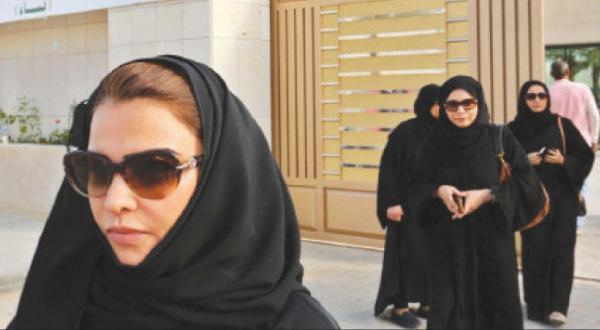
Saudi women leaving a polling station in Riyadh after casting their votes in the municipal council elections (EPA)
The results of municipal elections held in Saudi Arabia on Saturday in which women voted and participated as candidates for the first time have been announced. 20 women won seats in the municipal councils alongside 2086 men. 4 women were elected in Riyadh, making it the city with the highest number of female seats won.
The Minister of Municipal and Rural Affairs and President of the General Committee for Municipal Elections Abdullatif bin Abdulmalik bin Omar Al-Ashaikh announced yesterday that 2106 individuals, of them 20 women, were elected to be members of the municipal councils. He added that the voter turnout was 47.4% (702,542 voters).
Al-Ashaikh mentioned that these elections will prepare the elected councillors for success in light of the recent developments in important matters, features and abilities of the municipal councils. He added that he hopes the councillors will help the municipal system to fulfil its tasks and responsibilities.
The National Society for Human Rights (NSHR) in Saudi Arabia pointed out 9 negative observations on the progress of the day of the election during its observation of the electoral process. These included the continuity of some candidates’ advertising campaigns in the form of text messages in addition to the absence of candidates’ representatives who were allowed to observe in most polling stations. 14 positive observations were also made during the course of the electoral process.
The President of the National Society for Human Rights Dr Muflih Al-Qahtani noted that amongst the negatives was the fact that although most of the polling stations were easy to reach, a limited number of them were not easily accessible. Some problems regarding the fairness of electoral campaign conditions and the necessary authorisation for that were also noted, and the General Election Committee exerted efforts to overcome this.
The Committee also noted in its report some of the difficulties faced by women to provide proof of their identities or addresses. The NSHR noted that the authorities supervising the elections tried to facilitate this matter by minimising the impact that this had on the right of women to vote.
